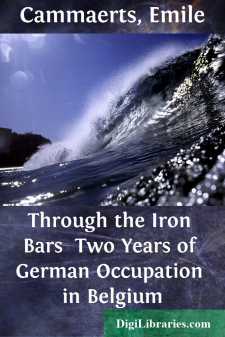History
- Africa 30
- Americas (North Central South West Indies) 50
- Ancient 68
- Asia 58
- Australia & New Zealand 8
- Canada 41
- Caribbean & West Indies 1
- Civilization 20
- Eastern Europe 12
- Europe 310
- Expeditions & Discoveries 60
- General 77
- Historical Geography 1
- Jewish 9
- Latin America 3
- Medieval 8
- Middle East 13
- Military
- Revolutionary 8
- Study & Teaching 5
- United States 353
- Western Europe 56
- World 13
Military Books
Sort by:
EGYPT AND THE SUEZ CANAL The Holy Land has been the scene of war since the dawn of History. Long before Belgium became the cock-pit of Europe, Palestine was the cock-pit of the known world. Here, on the high road between Asia and Africa, were fought the great wars of Egyptians and Assyrians, Israelites and Canaanites, Greeks and Romans, Saracens and Crusaders. With these few square miles are associated...
more...
CHAPTER I ARRESTED AS A SPY "Start August First. Book tickets immediately." Such were the instructions I received at Brighton early in July, 1914, from Prince ——. A few days previously I had spent considerable time with this scion of the Russian nobility discussing the final arrangements concerning my departure to his palace in Russia, where I was to devote two months to a special matter in...
more...
by:
Trumbull White
Information concerning the island of Cuba has been of an exceedingly unsatisfactory character until the search-light of American inquiry was thrown upon it from the beginning of the war for Cuban liberty early in 1895. Although our next-door neighbor to the south, with a perfect winter climate and a host of interesting and picturesque attractions for travelers, tourists had been comparatively few,...
more...
by:
Emile Cammaerts
I.THE PRISON GATES.The English-speaking public is generally well informed concerning the part played in the war by the Belgian troops. The resistance of our small field army at Liège, before Antwerp, and on the Yser has been praised and is still being praised wherever the tale runs. This is easy enough to understand. The fact that those 100,000 men should have been able to hold so long in check the...
more...
THE "ACTING SUB" He was a very junior young officer indeed when the powers that be first gladdened his heart and ruined his clothes by sending him to a destroyer. A mere sub-lieutenant with "(acting)" after his name, which, as any proper "sub" will tell you, is a sign of extreme juniority. Moreover, the single gold stripe on his monkey jacket was still suspiciously new and...
more...
by:
George Davidson
DIARY. March 16th, 1915.—After serving for five months as a lieutenant in what was at first known as the 1st Highland Field Ambulance, and afterwards, as the 89th Field Ambulance, I left Coventry, our last station, to do my little bit in the great European War, our destination being unknown. We had heard well-founded rumours that we were going to the Dardanelles, or somewhere in the Levant, and our...
more...
CHAPTER I Within the brief period of three years following the outbreak of the great war in Europe, more than four hundred thousand negroes suddenly moved north. In extent this movement is without parallel in American history, for it swept on thousands of the blacks from remote regions of the South, depopulated entire communities, drew upon the negro inhabitants of practically every city of the South,...
more...
by:
Emilio Aguinaldo
The Revolution of 1896 Spain maintained control of the Philippine Islands for more than three centuries and a half, during which period the tyranny, misconduct and abuses of the Friars and the Civil and Military Administration exhausted the patience of the natives and caused them to make a desperate effort to shake off the unbearable galling yoke on the 26th and 31st August, 1896, then commencing the...
more...
There is no magic formula to solve the problems of Iraq. However, there are actions that can be taken to improve the situation and protect American interests. Many Americans are dissatisfied, not just with the situation in Iraq but with the state of our political debate regarding Iraq. Our political leaders must build a bipartisan approach to bring a responsible conclusion to what is now a lengthy and...
more...
by:
Elmore Barce
PREFACE In presenting this book to the general public, it is the intention of the author to present a connected story of the winning of the Northwest, including the Indian wars during the presidency of General Washington, following this with an account of the Harrison-Tecumseh conflict in the early part of the nineteenth century, ending with the Battle of Tippecanoe. The story embraces all of the early...
more...











